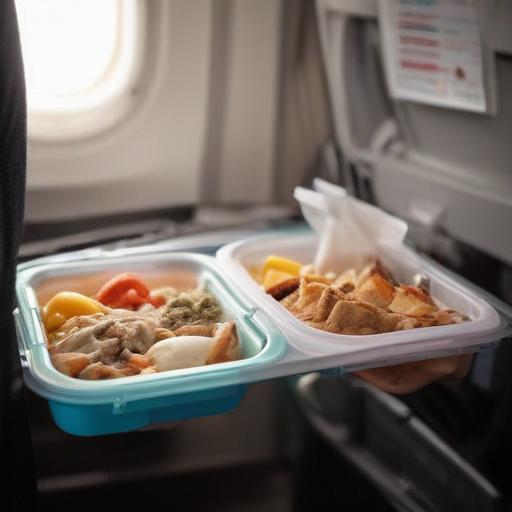A recent emergency incident involving a transatlantic flight has raised serious concerns about airline food safety protocols, particularly regarding food allergies. Dr. Doreen Benary, a pediatric emergency medicine physician from Manhattan, brought a federal lawsuit after she suffered a severe allergic reaction during a Singapore Airlines flight from Frankfurt to New York City.
On October 8, 2024, after informing the cabin crew about her severe shellfish allergy, Dr. Benary was inadvertently served a meal that contained shrimp. Unaware of the shrimp’s presence until after she had consumed part of the dish, she experienced a violent allergic reaction that necessitated the flight’s emergency diversion to Paris. Following the diversion, emergency medical treatment was administered at two separate facilities due to the severity of her condition.
Dr. Benary’s complaint emphasizes the fundamental responsibilities of airline staff to heed warnings about passenger allergies. It argues that the cabin crew’s failure to meet this duty of care was the basis for her injuries. Food allergies, especially those related to shellfish, can be incredibly dangerous and can lead to anaphylactic shock if not treated promptly.
This incident is not isolated; there have been other instances where passengers have suffered allergic reactions during flights. For example, in 2019, a flight was diverted when a passenger reacted to nuts, which resulted in difficulties breathing as food allergies are among the prevalent safety concerns in air travel. Moreover, the current regulations regarding emergency epinephrine administration raise questions about necessary preparedness on airlines.
In response to the lawsuit, Singapore Airlines has not commented on the matter due to its pending legal status. Attorney Abram Bohrer, representing Dr. Benary, stated he could not discuss the lawsuit further without her permission.
As airlines continue to grapple with food safety and passenger safety, incidents like Dr. Benary’s highlight the critical need for stringent adherence to allergy protocols to prevent such dangerous situations in the future. This lawsuit aims to bring attention to the broader implications for individuals with food allergies, emphasizing the importance of vigilance and care in the airline industry.
It is hopeful that this incident will lead to more stringent food safety practices and better training for airline staff on managing food allergies, ultimately improving the experience and safety for all passengers.
